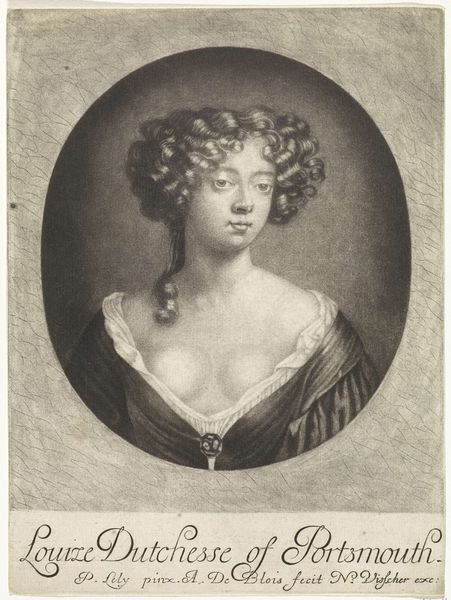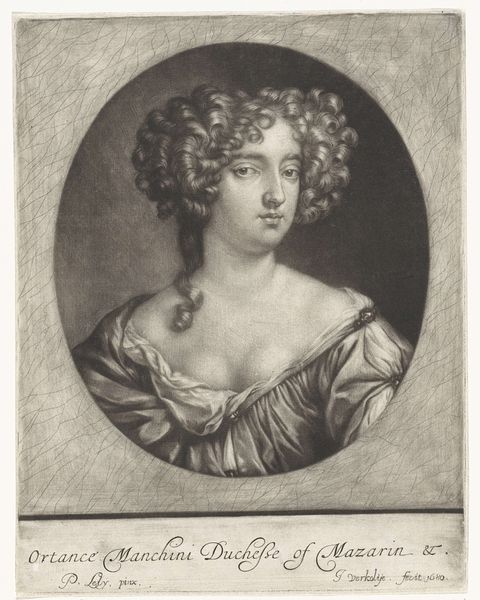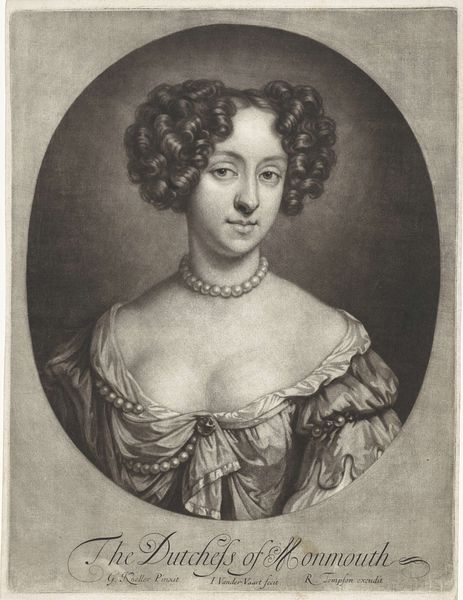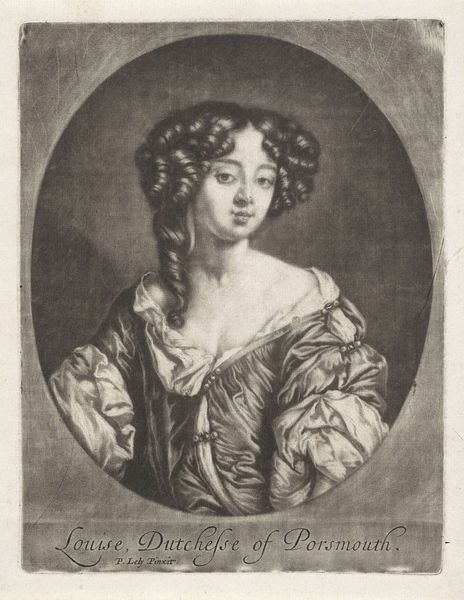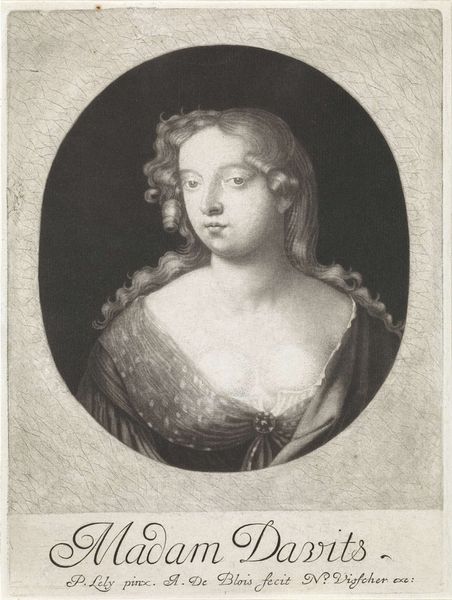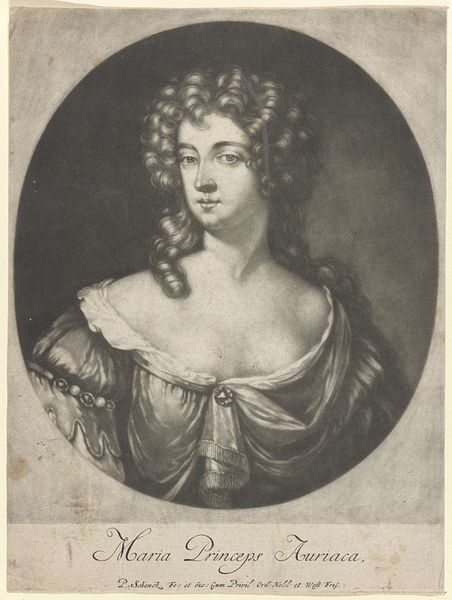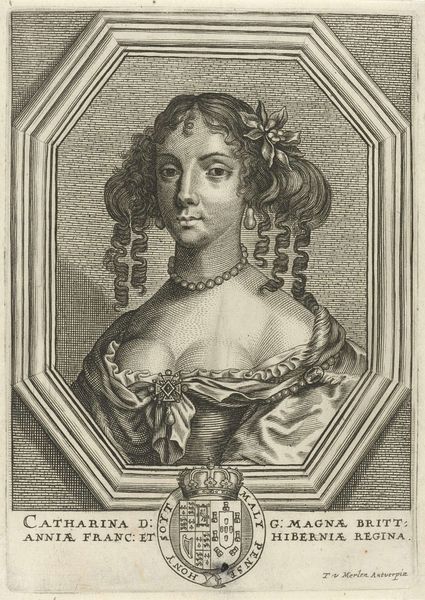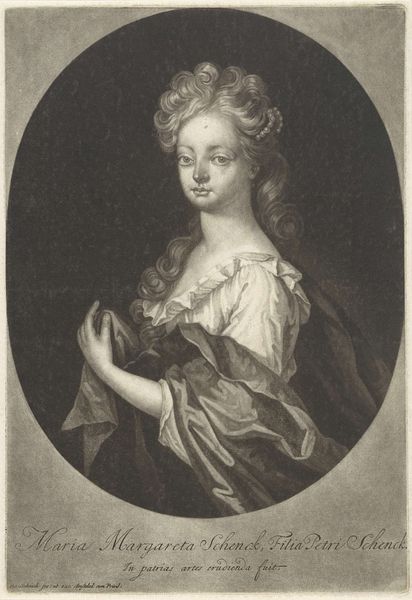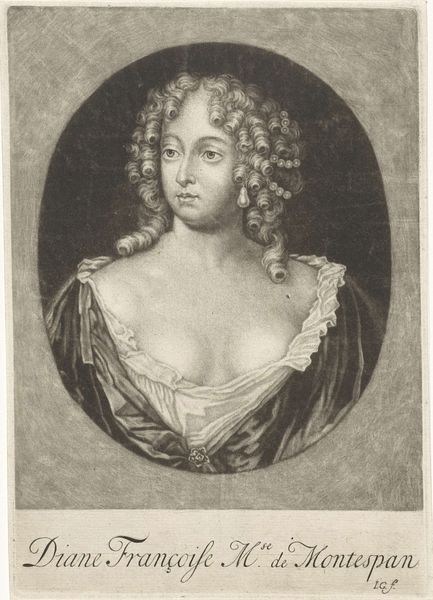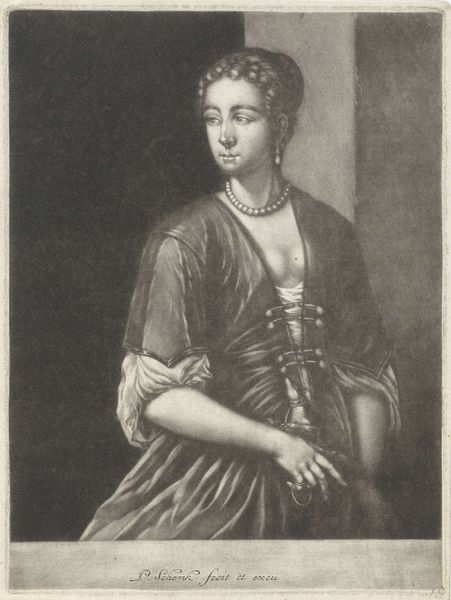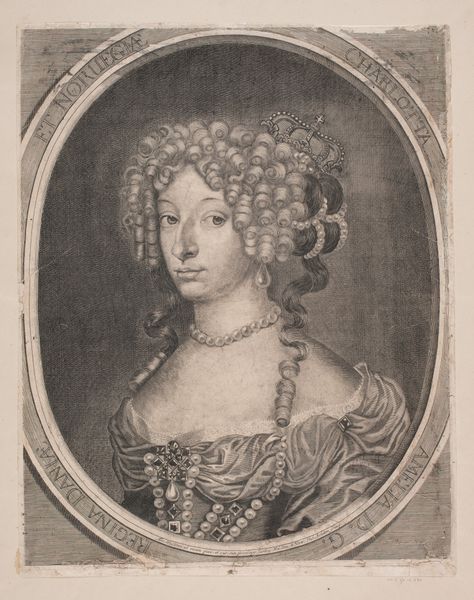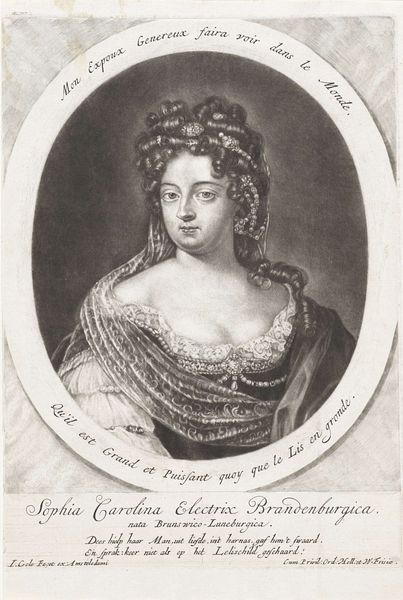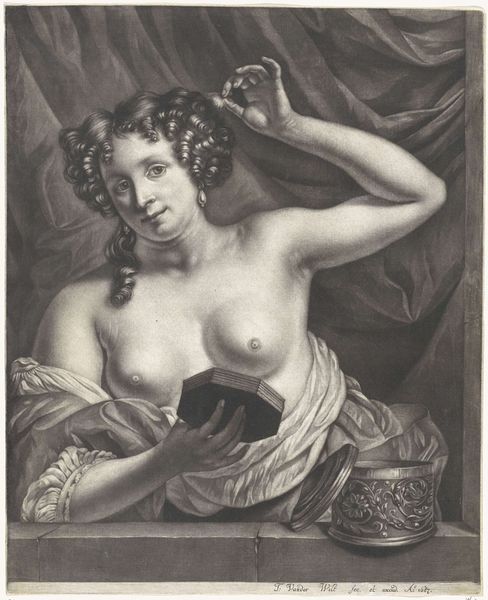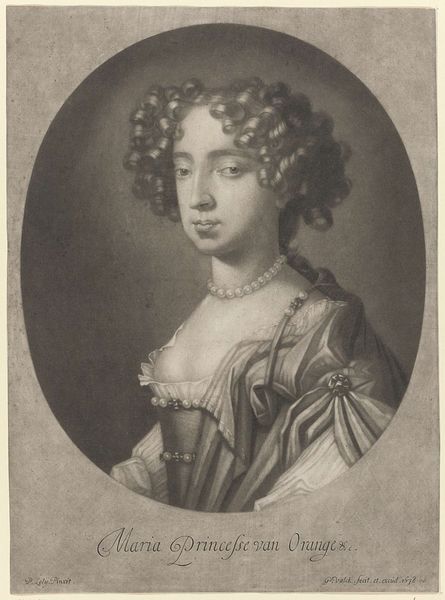
engraving
#
portrait
#
baroque
#
history-painting
#
engraving
Dimensions: height 210 mm, width 157 mm
Copyright: Rijks Museum: Open Domain
This is Abraham de Blois’s print of Eleanor Gwyn, made around the turn of the 18th century. The etching process involves covering a metal plate with a waxy ground, scratching away lines to expose the metal, and then bathing the plate in acid, which bites into the exposed lines. Ink is then applied to the plate, wiped away from the surface, and the image is printed onto paper. Note the remarkable level of detail, especially in the sitter’s curls and the delicate fabric of her dress. But also consider the amount of labor involved in this method of reproduction. Each impression would have taken time and skill to produce. Prints like this one played an important role in the circulation of images and ideas in the 18th century. They were a relatively affordable way to own a portrait, and they helped to spread the fame of the sitter. The printmaking process thus raises questions about labor, value, and the democratization of art. This was not exactly mass production, but it was a move in that direction.
Comments
No comments
Be the first to comment and join the conversation on the ultimate creative platform.
